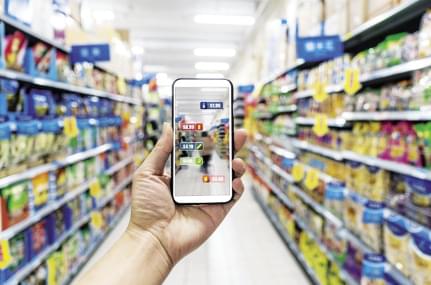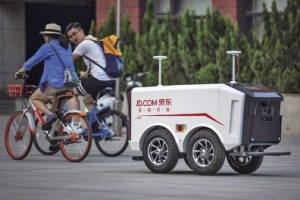Magazine: They will even know what we are thinking
According to a Deloitte study on the future of retailers, there are four fields where the rules are likely to be rewritten: 1. differentiating between digital investments, 2. connecting supply chains, warehouse management and digital user experiences, 3. giving priority to health and safety, 4. approaching cost transformation in a new way.
When the train leaves the station…
Digital differentiation means breaking out of the former operating structure. The most revolutionary change caused by the pandemic was the acceleration of digitalisation. Many retailers managed to jump on this train when it was leaving the station, so they could stay competitive. Deloitte’s advice is that companies should get in touch by using their portfolio of digital tools, utilising the full potential of their databases – so that they can forecast changes and react to them in time.

Tailor-made convenience
It is also very important for retailers to build consumer trust relying on health and safety. Rethinking costs has become essential as well, because the strengthening of e-commerce completely transformed the majority of businesses.
The consumer market of the future
PwC’s vision is that the store of the future will offer many experiences and have several channels, combining the physical world with the digital domain. Brands will become more significant, as a growing proportion of socially conscious consumers will try to find the brands that they can trust and identify with. The digital supply chain will make smart decisions to regulate itself, while the food products of the future are going to be healthier, more transparent and sustainable. In the future stores will be more digital.

Smart shopping = fast shopping
Problem-solving brands
Consumers are going to expect more and more from retailers. One of the new expectations will be brands setting goals that reflect the values of consumers, e.g. social consciousness. Consumers and employees will also want companies and their brands to support issues that are important for the society – or even to solve problems if possible. For instance 75 percent of the US respondents in PwC’s survey said businesses should take steps that result in positive environmental changes.

Not only contactless, but also unmanned!
Supply chains are under great pressure, because consumer behaviour and expectations have changed dramatically, plus omnichannel shopping and service from multiple warehouses make demands less predictable. Since there are so many uncertainties, the full transparency of supply chains has become the number one criterion.
Food products of the future
Food products should be healthy, transparent and sustainable – this is what consumers of the future will want from groceries. These trends were already present before the pandemic, but it made them much more robust. This May PwC asked consumers all over the world and half of them said they eat more plant-based food, because they want to live a more sustainable life. They also wish to cut down on packaging waste, make the supply chain more transparent and work conditions better. Local products are going to be much more in focus and groceries will be increasingly personalised. //

Local tastes are the real thing!
Related news
PwC Global CEO Survey: CEO confidence at a five-year low
🎧 Hallgasd a cikket: Lejátszás Szünet Folytatás Leállítás Nyelv: Auto…
Read more >Tuned to efficiency
🎧 Hallgasd a cikket: Lejátszás Szünet Folytatás Leállítás Nyelv: Auto…
Read more >Related news
ZEW: Economic expectations worsened in Germany and the euro area in February
🎧 Hallgasd a cikket: Lejátszás Szünet Folytatás Leállítás Nyelv: Auto…
Read more >







